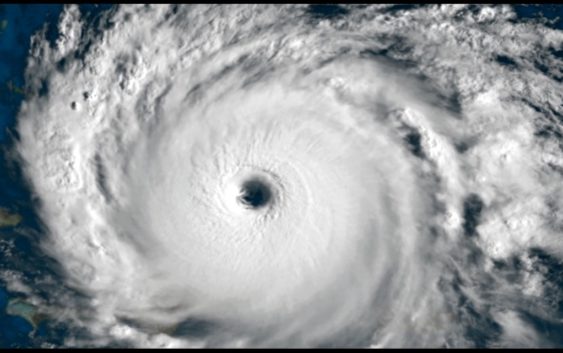- 'You could probably describe it as apocalyptic' | Central Texas firefighters help contain wildfires in Los Angeles
- NC expands hurricane recovery jobs program to more counties
- San Antonio-based H-E-B donates $1 million, sends supplies to victims of California wildfires
- Helene estimated to be the 7th costliest hurricane on record
- Hurricane Helene officially one of the costliest hurricanes in US history
NOAA's hurricane hunter team getting new aircraft

The agency’s been trying to get a new aircraft since 2019. The last two hurricane seasons have seen more storms than normal.
LAKELAND, Fla — The Florida-based hurricane hunter team is getting a new aircraft to help chase fierce storms.
The National Oceanic and Atmospheric Administration’s team will add a Gulfstream 550 to the three other aircraft at its home base at the Lakeland Linder International Airport in central Florida, the Orlando Sentinel reported.
The fleet currently consists of two Lockheed WP-3D Orion (P-3) four-engine turboprop aircraft and one Gulfstream IV-SP (G-IV) — affectionately named after Muppet characters Kermit, Miss Piggy and Gonzo.
NOAA’s 2022 budget request includes $100 million for the acquisition of a new hurricane hunter aircraft. The contract was awarded to Gulfstream Aerospace Corporation.
The agency has been trying to get a new aircraft since 2019 and originally wanted it to be active by 2022.
It will take a couple more hurricane seasons before the new aircraft joins the team — and gets a muppet moniker.
“We are continuing to work with Gulfstream on integrating the desired instruments and weather modifications and now expect delivery in time for the 2024 hurricane season,” NOAA Aircraft Operations Center spokesperson Johnathan Shannon told the newspaper.
Shannon said the new aircraft will be outfitted with real-time doppler radar, dropsondes capabilities, enhanced sensors and space for wing pods to mount cloud sensors. It also will be tailored to carry up to 14 crew and mission systems operators, including flight directors, meteorologists, hurricane specialists and engineers, he said.
As a hurricane hunter plane, the aircraft will be flying between 43,000 and 49,000 feet (13,106 and 14,935 meters) at Mach 0.8 for nine-hour missions as they explore hurricanes and tropical storms.
The fleet’s current Gulfstream, named Gonzo, was built in 1994 and joined the fleet in 1997 after modifications were made to support NOAA’s scientific missions, Shannon said.
“(Gonzo) is reaching the end of its useful service life. There are no immediate plans to retire the NOAA Gulfstream IV-SP,” Shannon said. “It will continue to fly missions as long as it remains operationally capable.”
The fleet needs the addition because of the number of storms they chase each season. The 2021 season was well above average — with 20 named storms — but not nearly as taxing to the hurricane hunter team as the 2020 season, which had 30. The team logged 3,500 flight hours in 2020. Last year was the first time both P-3 aircraft were deployed at the same time for hurricane exploration, Shannon said.
Both P-3 aircraft were obtained from Lockheed Martin in the mid-70s, according to NOAA.